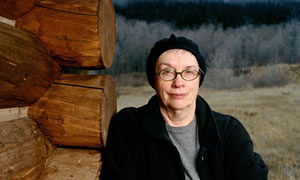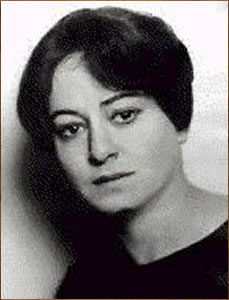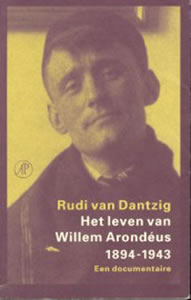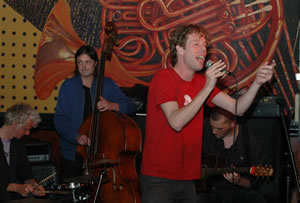|
De Amerikaanse schrijfster en journaliste Annie Proulx werd geboren op 22 augustus 1935 in Norwich, Connecticut. Zie ook mijn blog van 22 augustus 2007 en ook mijn blog van 22 augustus 2008 en ook mijn blog van 22 augustus 2009 en ook mijn blog van 22 augustus 2010.xml:namespace prefix = o ns = "urn:schemas-microsoft-com:office:office" />
Uit The Old Ace in The Hole
Irrigated circles of winter wheat, dotted with stocker calves, grew on land as level as a runway. In other fields tractors lashed tails of dust. He noticed the habit of slower drivers to pull into the breakdown lane -- here called the "courtesy lane" -- and wave him on.
Ahead cities loomed, but as he came close the skyscrapers, mosques and spires metamorphosed into grain elevators, water towers and storage bins. The elevators were the tallest buildings on the plains, symmetrical, their thrusting shapes seeming to entrap kinetic energy. After a while Bob noticed their vertical rhythm, for they rose up regularly every five or ten miles in trackside towns. Most were concrete cylinders, some brick or tile, but at many sidings the old wood elevators, peeling and shabby, still stood, some surfaced with asbestos shingles, a few with rusted metal loosened by the wind. Rectilinear streets joined at ninety-degree angles. Every town had a motto: "The Town Where No One Wears a Frown"; "The Richest Land and the Finest People"; "10,000 Friendly People and One or Two Old Grumps." He passed the Kar-Vu Drive-In, a midtown plywood Jesus, dead cows by the side of the road, legs stiff as two-by-fours, waiting for the renderer's truck. There were nodding pump jacks and pivot irrigation rigs (one still decked out in Christmas lights) to the left and right, condensation tanks and complex assemblies of pipes and gauges, though such was the size of the landscape and their random placement that they seemed metal trinkets strewn by a vast and careless hand. Orange-and-yellow signs marked the existence of underground pipelines, for beneath the fields and pastures lay an invisible world of pipes, cables, boreholes, pumps and extraction devices, forming, with the surface fences and roads, a monstrous three-dimensional grid. This grid extended into the sky through contrails and invisible satellite transmissions. At the edge of fields he noticed brightly painted V-8 diesel engines (most converted to natural gas), pumping up water from the Ogallala aquifer below. And he passed scores of anonymous, low, grey buildings with enormous fans at their ends set back from the road and surrounded by chain-link fence. From the air these guarded hog farms resembled strange grand pianos with six or ten white keys, the trapezoid shape of the body the effluent lagoon in the rear.

Annie Proulx (Norwich, 22 augustus 1935)
De dichteres en critica Dorothy Parker werd geboren in New York op 22 augustus 1893. Zie ook mijn blog van 22 augustus 2010 en eveneens alle tags voor Dorothy Parker op dit blog.
Ballade Of A Great Weariness
There's little to have but the things I had,
There's little to bear but the things I bore.
There's nothing to carry and naught to add,
And glory to Heaven, I paid the score.
There's little to do but I did before,
There's little to learn but the things I know;
And this is the sum of a lasting lore:
Scratch a lover, and find a foe.
And couldn't it be I was young and mad
If ever my heart on my sleeve I wore?
There's many to claw at a heart unclad,
And little the wonder it ripped and tore.
There's one that'll join in their push and roar,
With stories to jabber, and stones to throw;
He'll fetch you a lesson that costs you sore:
Scratch a lover, and find a foe.
So little I'll offer to you, my lad;
It's little in loving I set my store.
There's many a maid would be flushed and glad,
And better you'll knock at a kindlier door.
I'll dig at my lettuce, and sweep my floor,
Forever, forever I'm done with woe.
And happen I'll whistle about my chore,
"Scratch a lover, and find a foe."
L'ENVOI
Oh, beggar or prince, no more, no more!
Be off and away with your strut and show.
The sweeter the apple, the blacker the core:
Scratch a lover, and find a foe!

Dorothy Parker (22 augustus 1893 7 juni 1967)
De Nederlandse schrijver en beeldend kunstenaar Willem Arondéus werd op 22 augustus 1894 in Naarden geboren. Zie ook mijn blog van 22 augustus 2007 en ook mijn blog van 22 augustus 2008 en ook mijn blog van 22 augustus 2009 en ook mijn blog van 22 augustus 2010.
Uit: Gert Hekma, "Willem Arondéus", in: Gay Amsterdam News
Zijn artistieke loopbaan was niet zo succesvol als hij had gewild, maar toch kon hij op enige blijvende resultaten bogen zoals wandversieringen in het stadhuis van Rotterdam en het Amsterdamse GGD-gebouw aan de Nieuwe Achtergracht en gobelins aan de wanden van de zaal van Provinciale Staten in Haarlem.
Later ging hij over van schilderen naar schrijven en verschenen vier boeken van zijn hand, twee romans en twee kunsthistorische studies. Nooit gepubliceerd werden zijn homoërotische gedichten en novelles en zijn dagboeken. Al jaren kondigt Rudi van Dantzig publikatie van die dagboeken aan maar het is er nog niet van gekomen. De gedichten zijn dit jaar uitgekomen in een bibliofiele uitgave.
Vissers en matrozen
Hoewel Arondéus een tobber was en in zijn dagboeken en brieven graag mocht klagen over ongeluk en tegenspoed, heeft hij zeker wel gelukkige momenten meegemaakt.
Na de Eerste Wereldoorlog bezocht hij Parijs waar hij zich prima vermaakte. Begin jaren twintig woonde hij op Urk, dat toen nog een eiland was. Daar had hij min of meer gelukkige relaties met vissers en matrozen. In 1932 bezocht hij Hamburg waar hij net het einde van de "roaring twenties" beleefde. Het jaar daarna verhuisde hij van Amsterdam naar Apeldoorn waar hij de levensgezel van zijn laatste tien jaar ontmoette, Gerrit Jan Tijssen (1913-1979).

Willem Arondéus (22 augustus 1894 1 juli 1943)
De Nederlandse dichter Krijn Peter Hesselink werd op 22 augustus 1976 geboren in Utrecht. Zie ook mijn blog van 22 augustus 2008 en ook mijn blog van 22 augustus 2009 en ook mijn blog van 22 augustus 2010.
De uitputting voorbij
Ze weet wat liefde is, de kat die zij
achter heeft moeten laten bij haar ouders
had van zijn vroeggestorven moeder nooit
geleerd zijn klauwen uit te slaan, zijn prooien
konijntjes meestal, put hij uit totdat
hun hart het van de schrik spontaan begeeft
als zij, hooguit een keer per jaar, nog thuiskomt
en na de thee de boerderij ontvlucht
om bij hem troost te zoeken op het erf
dan zit hij op zijn vaste plekje onder
de ladder die geen mens ooit nog gebruikt
en kijkt afwachtend naar haar op, zij steekt
een hand tussen de treden door, hij kantelt
zijn kop en laat zich aaien, of
toch niet, haar vingers vinden enkel lucht
hij put haar uit, hij weet wat liefde is

Krijn Peter Hesselink (Utrecht, 22 augustus 1976)
Zie voor nog meer schrijvers van de 22e augustus ook mijn vorige blog van vandaag.
|



